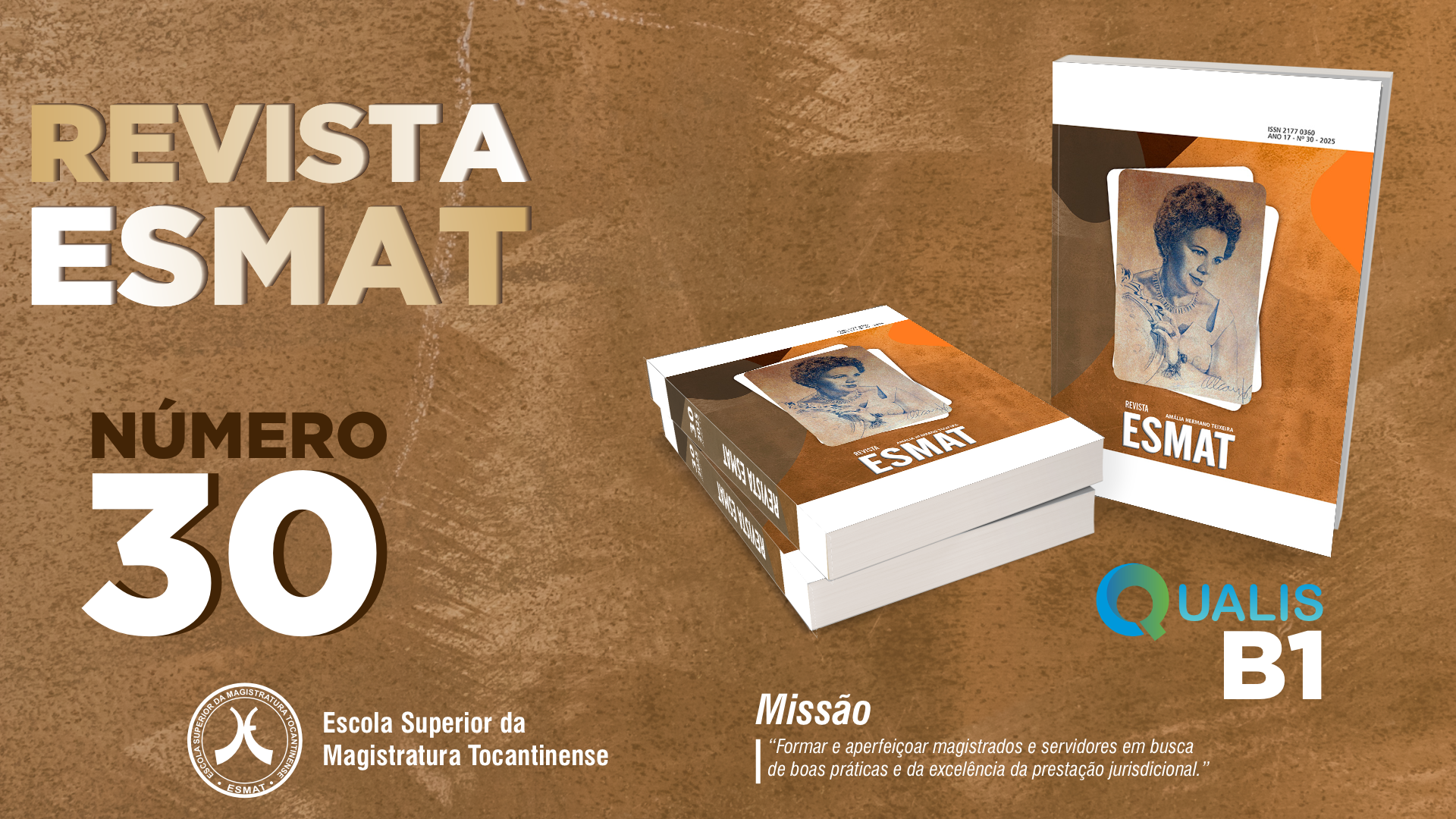
The Superior School of the Judges of the State of Tocantins has published the 30th edition of the ESMAT Journal, an interdisciplinary scientific journal linked to the UFT/ESMAT Doctoral and Master's Programs in Judicial Provision and Human Rights, which aims to promote the dissemination of legal and scientific knowledge.
In its 30th edition, the journal presents 14 unpublished articles, 12 of which are national and 2 international, from Peru and China. The research addresses topics such as Indigenous Rights and Land Demarcation in Brazil; Rights of Women; Diversity; The Influence of the Eurocentrism on the Brazilian Legal System, among others.
The articles were written by renowned national and international authors, providing a comprehensive and in-depth view of the contemporary challenges that permeate law and society.
Tribute
In this issue, ESMAT Journal pays a special tribute to Amália Hermano Teixeira, who stood out as a multifaceted intellectual, working as a professor, researcher, biographer, historian, orchidophile, lawyer, folklorist, archivist, lecturer and journalist.
Born in 1916 in the city of Natividade - formerly the north of the state of Goiás - now the state of Tocantins, Amália was a great defender of the Brazilian cerrado, dedicating her life to the study and conservation of the flora of the region.
Her legacy lives on in institutions that bear her name, such as the Amália Hermano Teixeira State College and the Amália Hermano Teixeira Botanical Garden, both located in the city of Goiânia (GO), symbolizing her commitment to education and environmental preservation.
About the journal
ESMAT Journal is a four-monthly interdisciplinary scientific journal published by the Superior School of the Judges of the State of Tocantins, a body linked to the Court of Justice of the State of Tocantins.
The journal welcomes unpublished scientific contributions, focusing on a critical approach to the topics covered, both nationally and internationally. Submissions are continuous and take place throughout the year.
Its main objective is to act as a means of disseminating knowledge produced by judges, students, professors, civil servers, lawyers, members of the State Prosecution and other members of the legal and academic community.
For more information on the guidelines for authors, click here.




